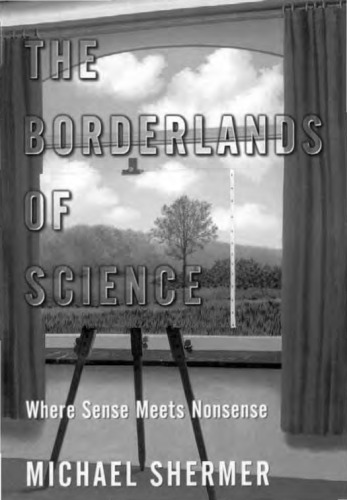

Most ebook files are in PDF format, so you can easily read them using various software such as Foxit Reader or directly on the Google Chrome browser.
Some ebook files are released by publishers in other formats such as .awz, .mobi, .epub, .fb2, etc. You may need to install specific software to read these formats on mobile/PC, such as Calibre.
Please read the tutorial at this link: https://ebookbell.com/faq
We offer FREE conversion to the popular formats you request; however, this may take some time. Therefore, right after payment, please email us, and we will try to provide the service as quickly as possible.
For some exceptional file formats or broken links (if any), please refrain from opening any disputes. Instead, email us first, and we will try to assist within a maximum of 6 hours.
EbookBell Team

5.0
20 reviews
ISBN 10: 0195157982
ISBN 13: 9780195157987
Author: Michael Shermer
In The Borderlands of Science, Michael Shermer takes us to the place where real science, borderline science--and just plain nonsense--collide. Shermer argues that while science is the best lens through which to view the world, it is often difficult to decipher where valid science leaves off and borderland, or "fuzzy" science begins. To solve this dilemma, he looks at a range of topics that put this boundary line in high relief. For instance, he debunks the many "theories of everything" that try to reduce the complexity of the world to a single principle. He examines the work of Darwin and Freud, explaining why one is among the great scientists in history, while the other has become nothing more than a historical curiosity. And he reveals how scientists themselves can be led astray, as seen in the infamous Piltdown hoax--the set of ancient hominid bones discovered in England that after decades turned out to be an enormous forgery.
From SETI and acupuncture to hypnosis and human cloning, this enlightening book will help readers stay grounded in common sense amid the flurry of supposedly scientific theories that inundate us every day.
Part I: Belief and the Brain
Chapter 1: The Brain's Natural Tendency to Believe
This chapter explores cognitive biases and patternicity, the tendency to find meaningful patterns in random data.
Chapter 2: The Feeling of Knowing
Discusses the difference between belief, knowledge, and the subjective feeling of certainty.
Chapter 3: Why Good People Believe Bad Things
Examines the psychological and social factors that lead people to believe in pseudoscience.
Chapter 4: The Nature of Proof and Evidence
A philosophical and scientific look at what constitutes valid evidence.
Part II: On the Borderlands
Chapter 5: Where UFOs Go: The Scientific Search for Extraterrestrial Life
An examination of the search for alien life, UFO sightings, and the Fermi Paradox.
Chapter 6: Mind Games: Remote Viewing and Psychics
Investigates the claims of psychic abilities, remote viewing, and the use of cold reading.
Chapter 7: Living Forever: Cryonics and the Search for Immortality**
A discussion of cryopreservation and the scientific and ethical issues surrounding it.
Chapter 8: Heavenly Influences: Astrology and the Cosmos**
A skeptical analysis of astrology, its claims, and its history.
Chapter 9: The Power of the Pyramid: Energy and Pseudoscience**
Looks at a variety of unsubstantiated claims, from pyramid power to crystal healing.
Part III: The Scientific Mind
Chapter 10: The Scientific Method: A Guide to the Unknown
Explains the fundamentals of the scientific method and its self-correcting nature.
Chapter 11: Why Science is the Best Way to Know the World
Argues for the superiority of science over other ways of knowing, such as faith or intuition, in understanding the natural world.
Chapter 12: The Future of the Borderlands
Concludes with a discussion on the evolving boundary between science and pseudoscience and the role of skepticism.
the borderlands of science
borderlands science explained
is borderlands science real
borderlands science answers
borderlands science characters
borderlands science intro
Tags: Michael Shermer, Borderlands, Science